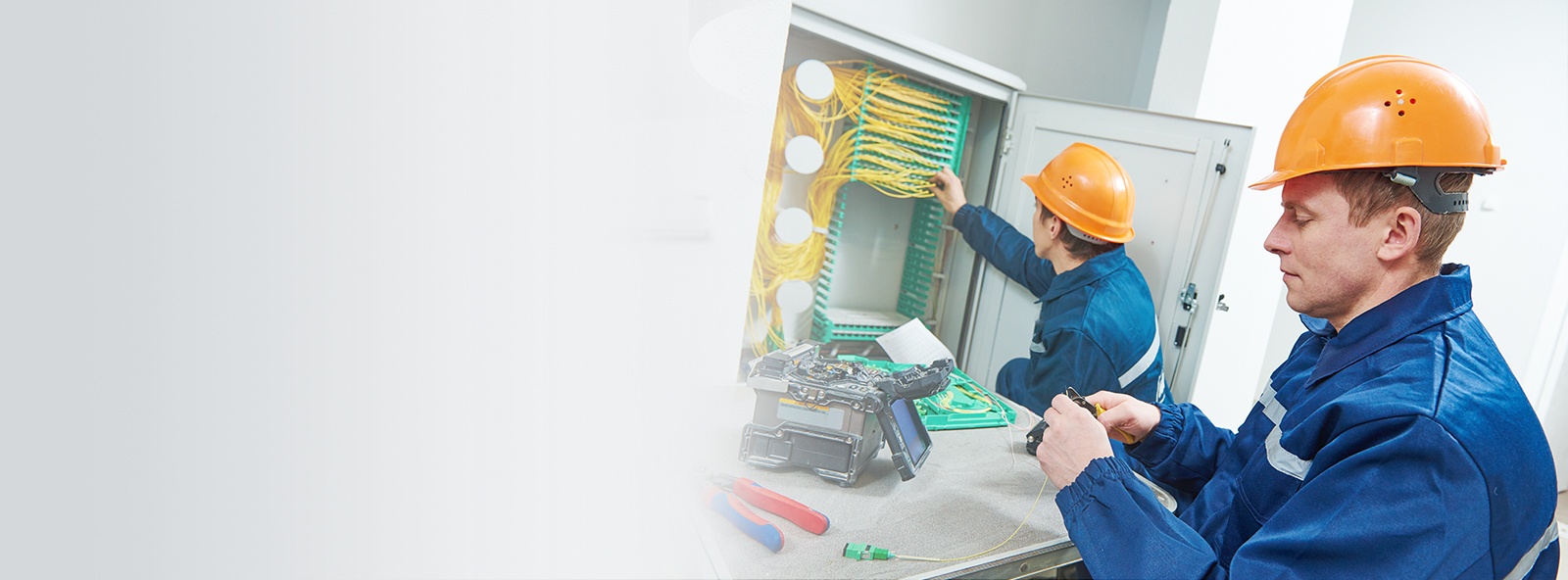-

Fiber-Optic Wiring
Fiber-Optic Cabling in Boynton Beach, Florida
Advantages of Fiber Optic Cable
1. Speed:
- If you need to transmit data (and a lot of it) in a short amount of time, fiber optic cables are superior to copper wiring.
- Fiber optic cables are made of tiny strands of glass, each about the size of a human hair, and use light pulses. Thus, they can carry a lot of data—up to 60 terabits per second.
- Copper cables, limited by the speed at which electrons travel, can only reach about 10 gigabits per second.
2. Reach:
- Fiber is the better choice if you need to send a signal over greater distances.
- Fiber optic cables can carry more data up to 25 miles with less attenuation or signal loss — only about 3% every 100 meters
- Copper cables can only carry signals about 100 meters with losses over 90% over the same distance
3. Reliability
- Since they are electrical conductors, copper cables are still susceptible to interference and electrical surges.
- Fiber uses a process known as a total internal reflection to carry light signals instead of electricity, so it’s not affected by electromagnetic interference that can interrupt data transmission.
- Fiber is immune to temperature changes, severe weather, and moisture, all of which can hamper the connectivity of copper cable.
- Fiber does not present a fire hazard like old or worn copper cables can.
4. Durability
- Copper wire is only able to withstand a 25lbs pulling force
- Fiber, despite being much lighter, can withstand up to 200 pounds of pressure, which is certainly preferable during the construction of a local area network (LAN).
- Copper cables also experience corrosion and will eventually have to be replaced after as little as five years. Their performance degrades as they age, even to the point where they lose their signal altogether.
- Fiber optic cables, on the other hand, are sturdier with fewer parts and can last up to 50 years.
5. Security
Your data is much more secure with fiber optic cables, which don’t carry electrical signals and are almost impossible to tap into. Even if a cable is compromised or damaged, it can easily be detected by monitoring the power transmission. Copper cables, on the other hand, can still be tapped, which could affect your internet speed or even destroy your network.
6. Cost
- Copper may seem to be the most cost-effective option because it costs much less than fiber optic cable.
- However, after you factor in hidden costs, maintenance, interference, risk of tampering and replacement cost Fiber is a better financial option in the long run
7. New Technology
- Network devices that require more bandwidth, higher speeds, and more reliable internet connectivity, such as security cameras, digital signage, and VoIP phone systems, make fiber optic cable the obvious choice
Serving clients across Boynton Beach, West Palm Beach, Jupiter, Palm Beach Gardens, Delray Beach, Boca Raton, Pompano Beach, Fort Lauderdale, Lake Worth, Coral Springs, and the surrounding areas.
